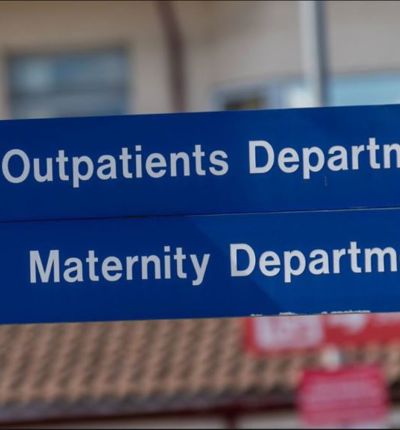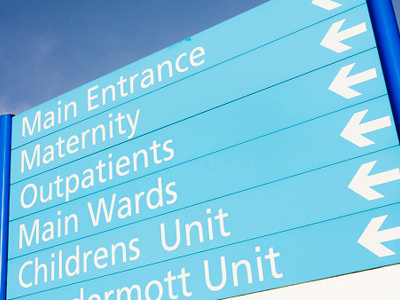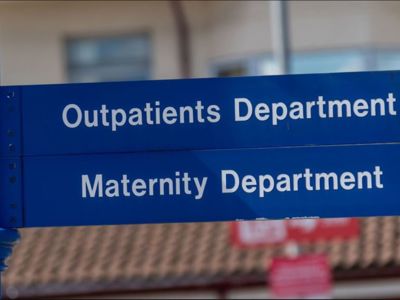
Three-day-old baby would have survived if C-section was performed sooner, inquest concludes
An inquest into the death of Emmy Russo found she would have survived if a caesarean section had been performed on her mother sooner.
Posted on 08 May 2025
Emmy died aged three days from a severe brain injury on 12 January 2024 at Addenbrookes’ Hospital, Cambridge.

Recording a narrative conclusion, HM Area Coroner Thea Wilson said Emmy died of an acute hypoxic injury sustained shortly before her delivery. She concluded there were missed opportunities to expedite delivery by caesarean section, and had an earlier decision been made, on the balance of probabilities, Emmy would have survived.
A five-day inquest at Chelmsford Coroners Court heard evidence regarding the management of Emmy's mother Bryony’s pregnancy, the advice given to her, and the decisions made regarding labour, delivery and the timing of induction. It also examined whether there were any delays in deciding to proceed with a caesarean section.
On the morning of 9 January, Bryony began experiencing contractions and the loss of thick dark brown mucous known as meconium. She was advised to head to hospital and was sent to the antenatal ward without assessment, where she was admitted for an induction of labour.
It was not until after 3.00pm, when a midwife confirmed that meconium was present and a CTG monitoring was commenced. The CTG trace showed multiple decelerations which later became more prolonged, but an emergency caesarean was not performed until much later that evening, by which point Emmy had already suffered a hypoxic injury.
The inquest heard meconium was identified during Bryony’s labour - often a sign of foetal distress. According to the evidence heard, Bryony's waters broke shortly after midday and midwives documented that the fluid was stained with meconium. One midwife added a significant amount of meconium was again spotted later that day, which she described as being the most she had seen. A midwife acknowledged that the presence of meconium should have prompted more urgent action and, alongside the CTG concerns, warranted immediate senior review, which did not take place until seven hours after Bryony’s first admission.
Upon seeing Emmy after being born, her parents recalled being told that she had swallowed meconium and had been in distress.
The inquest also heard Bryony and Daniel had requested a caesarean section much earlier on 9 January, but the midwife “laughed off” their request and insisted Bryony try giving birth naturally.
Emmy was born in poor condition that evening and required immediate resuscitation. She was transferred to the neonatal intensive care unit at Addenbrookes’ Hospital, but her condition deteriorated over the following days.
An MRI scan confirmed significant brain injury. Bryony and Daniel were told Emmy would never know her own name, be able to breathe on her own, and would require 24-hour care. They were told there was no hope of recovery and Emmy died in Daniel’s arms on 12 January.
Giving evidence at the inquest, obstetrics expert Dr Teresa Kelly reported that there were “multiple opportunities” during Bryony’s labour to offer delivery of Emmy by caesarean section. She criticised the lack of information given to Bryony by the antenatal midwife regarding the risks of continuing with pregnancy beyond 41 weeks. She also said that had an earlier caesarean section been performed, Emmy could still be alive. She told the inquest the management of Bryony’s labour was not appropriate and fell below reasonable standard – adding she would have expected an obstetrician to have assessed Bryony much earlier, and for a caesarean to have been prepared. Other witnesses also suggested they wished they had acted on the foetal decelerations and offered a caesarean section sooner.
Following the inquest, HM Area Coroner Thea Wilson will be issuing a Prevention of Future Deaths (PFD) report on the information given to mothers on the induction of labour.
Emmy’s parents Bryony and Daniel Russo, who live in Essex, are represented by Firdous Ibrahim at law firm Leigh Day.
Bryony and Daniel said:
“We are completely broken by the loss of our beautiful baby girl, Emmy. She was our first child – so wanted, so loved – and we will never understand how things went so tragically wrong. We did everything we were told; we followed the advice we were given, but deep down we knew something wasn’t right. We voiced our worries again and again, but we were dismissed.
“When we finally arrived at hospital in labour, we trusted that our care would be escalated when things became concerning. We now know that there were clear signs that Emmy was in distress, and those signs weren’t acted on. It is absolutely devastating to know that had they taken the decision to deliver her even a couple of hours earlier, Emmy would likely be here today. Instead, we held her as she died, knowing there was nothing more anyone could do.
“We miss her every second of every day. There is no pain like this. We hope that by sharing our experience and by this inquest shining a light on what went wrong, impactful changes will be made to ensure no other family has to endure this kind of heartbreak.”
Firdous Ibrahim said:
“This inquest has confirmed what Bryony and Daniel have long suspected - that Emmy’s death was entirely preventable. There were missed opportunities to intervene when it was clear that Emmy was not coping with labour. Expert evidence confirmed that, had action been taken sooner, Emmy’s life could have been saved. These are not just clinical oversights; they are devastating failures with life-shattering consequences.
“The family are grateful that the inquest process has given them some answers, but this has come at a terrible cost. It is now incumbent on the Trust to learn from what has happened, to reflect, and to implement the necessary changes to ensure this never happens again. No parent should have to bury their child because of delays or missed warnings in hospital care.”

Firdous Ibrahim
Firdous Ibrahim is a senior associate solicitor in the medical negligence department.

Coroner raises concerns over emergency call delays after inquest into the death of three-day-old baby
A senior coroner has highlighted concerns over emergency call delays following the inquest into the death of three-day-old baby Wyllow-Raine Swinburn.

Ending violence against women in maternity care: dignity in birth is a human right
For the 16 days of Activism against Gender-based Violence, senior associate solicitor Firdous Ibrahim and trainee solicitor Nayaab Asif highlight the importance of respectful and dignified maternity care for all women.

